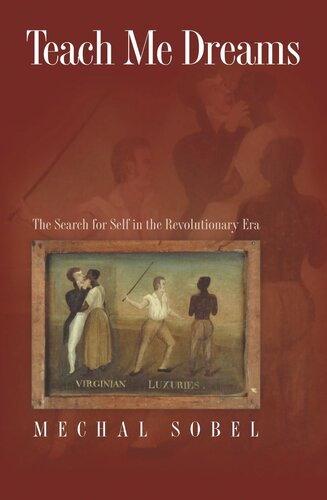

Most ebook files are in PDF format, so you can easily read them using various software such as Foxit Reader or directly on the Google Chrome browser.
Some ebook files are released by publishers in other formats such as .awz, .mobi, .epub, .fb2, etc. You may need to install specific software to read these formats on mobile/PC, such as Calibre.
Please read the tutorial at this link: https://ebookbell.com/faq
We offer FREE conversion to the popular formats you request; however, this may take some time. Therefore, right after payment, please email us, and we will try to provide the service as quickly as possible.
For some exceptional file formats or broken links (if any), please refrain from opening any disputes. Instead, email us first, and we will try to assist within a maximum of 6 hours.
EbookBell Team

5.0
70 reviewsOne day in 1698, Robert Pyle of Pennsylvania decided to buy a black slave. The next night he dreamed of a steep ladder to heaven that he felt he could not climb because he carried a black pot. In the dream, a man told him the ladder was the light of Jesus Christ and would bear any whose faith held strong; otherwise, the climber would fall. Pyle woke that morning positive that he should eschew slaves and slavery, having equated the pot with the slave he wished to buy. In fact, so acutely did this dream awaken him to his sins that he became a dynamic advocate of liberation. This dream literally changed his outlook and his life.
Teach Me Dreams delves into the dream world of ordinary Americans and finds that as their self-perception increased, transforming them on a personal level, so did a revolutionary spirit that wrought momentous political changes. Mechal Sobel considers dreams recorded in the life narratives of 100 people, revealing the America of the Revolutionary Era to have been a truly dream-infused culture in which analysis of dreams was encouraged, and subsequent personal reevaluation was striking. Sobel uses a wealth of information--letters, diaries, and over 200 published autobiographies from a wide range of "ordinary" people; black, white, male, female. In these accounts, many previously neglected by historians, dreamers explain how their nighttime adventures opened their eyes to aspects of themselves, or unveiled new paths they should take both personally and politically. Such paths often led them to challenge those in power.
Charting the widely dreamed of opposition between blacks and whites, men and women, Sobel offers astounding new insights into how early Americans understood their lives. Her analysis of the dreams and lives of ordinary Revolutionary-Era people demonstrates links between dreaming, self reevaluation, and participation in the radically changing politics of the time. This book will appeal to specialists in the fields of American and African-American history, and anyone interested in dreams and self-development.